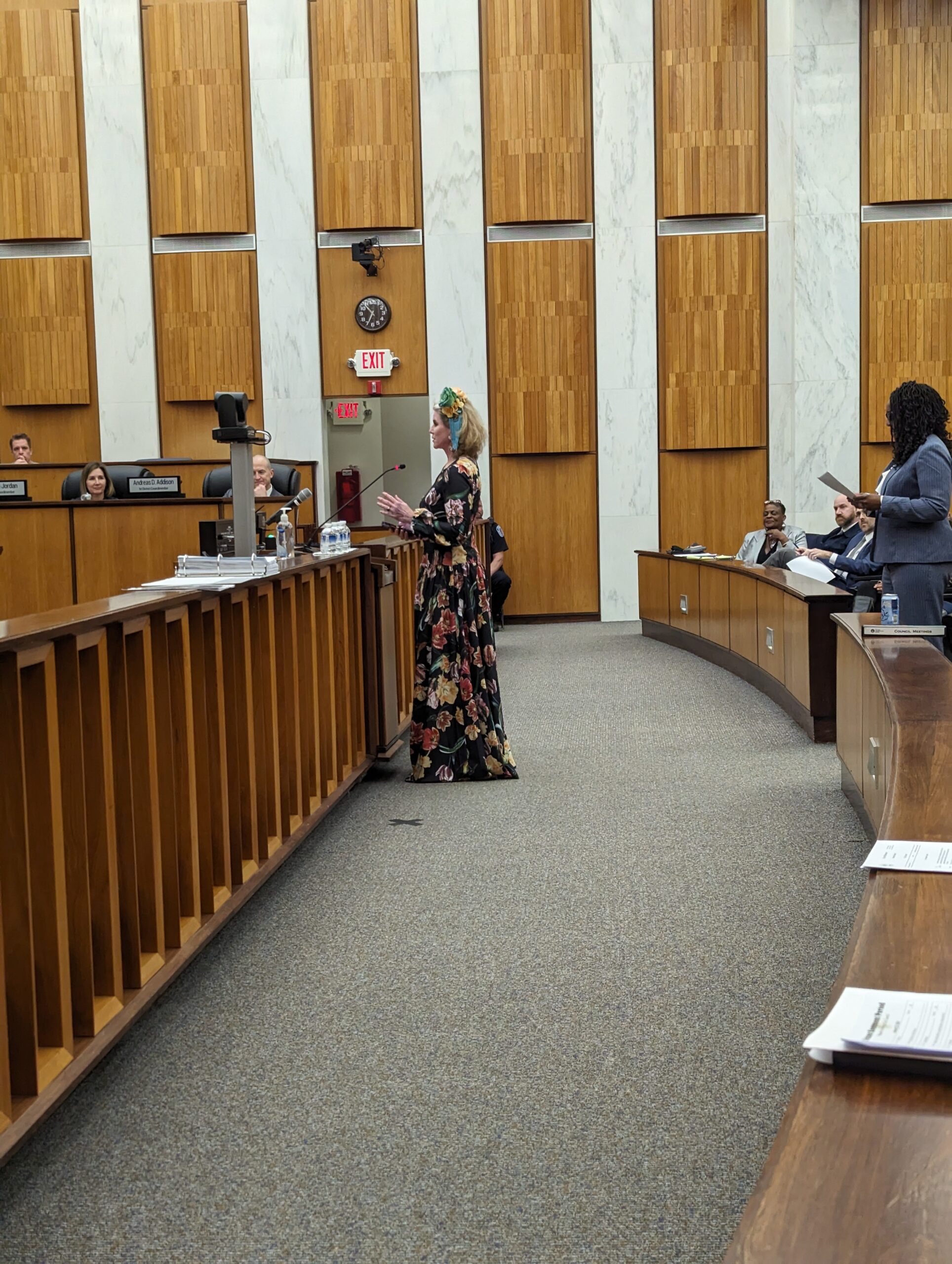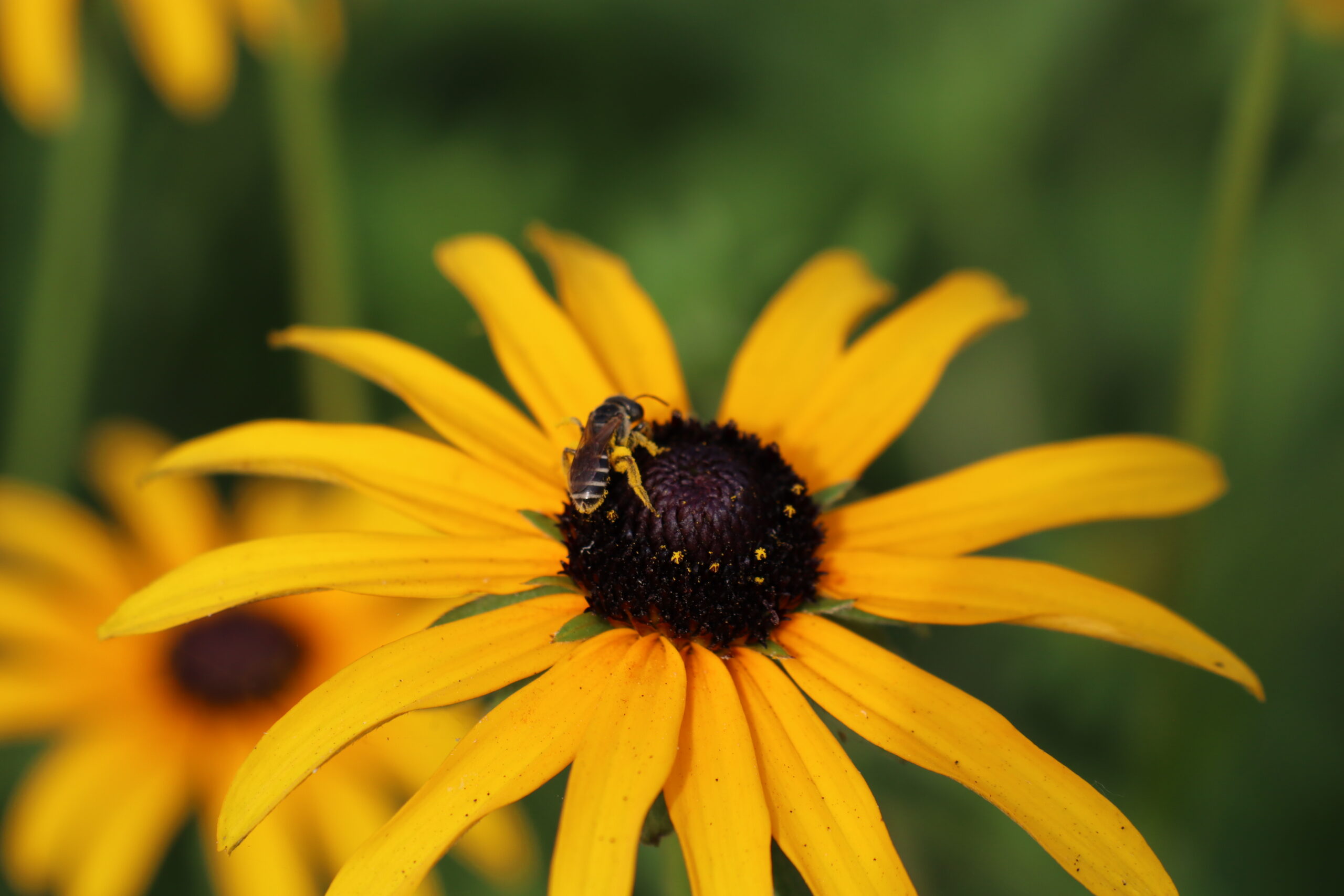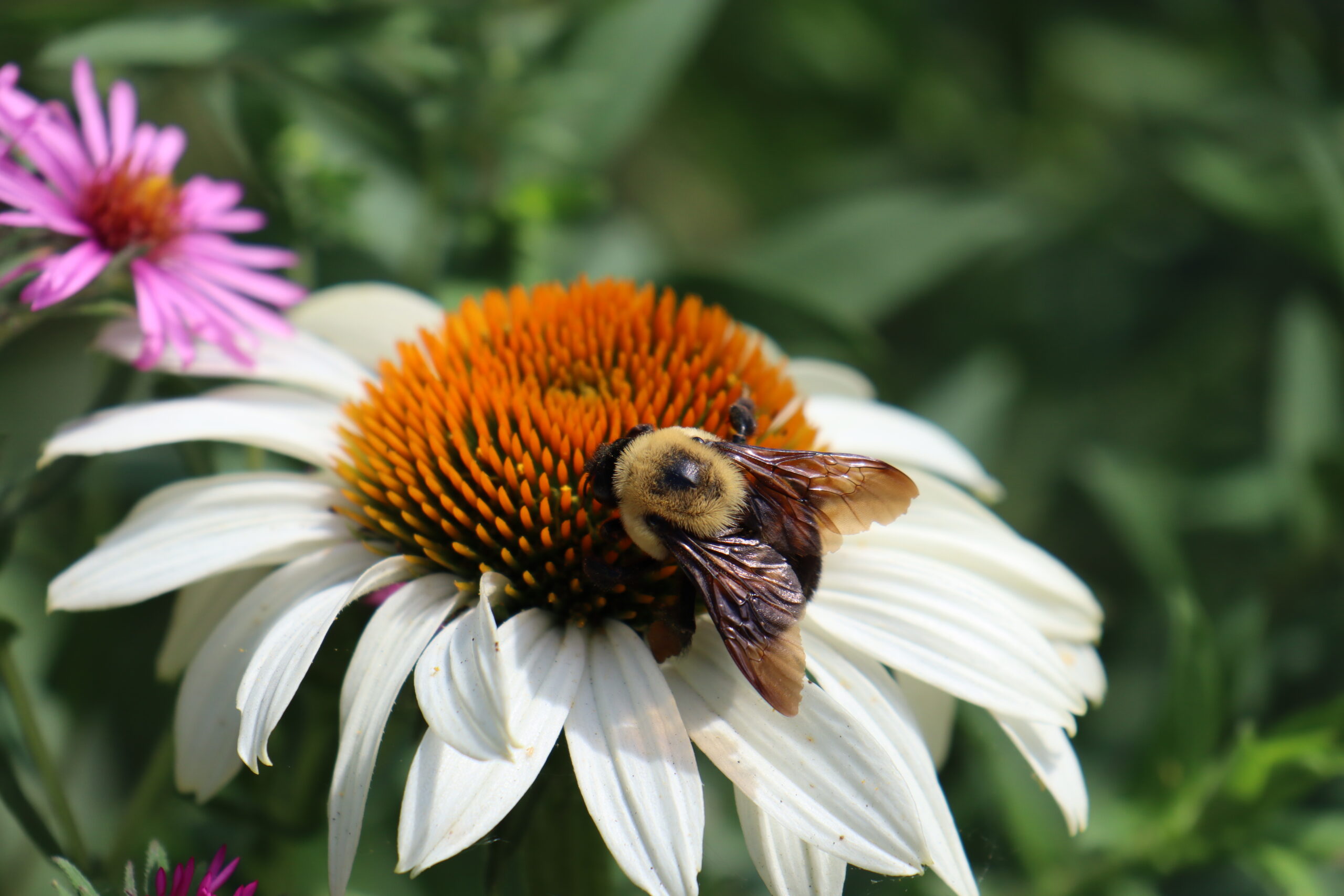After three years of study and collaboration, a coalition of community organizations with the support of Richmond’s Department of Parks, Recreation and Community Facilities submitted a resolution to City Council to support the designation of Richmond as a Bee City USA Affiliate. The resolution supports the department’s mission to protect and build native habitats for the insects that depend on them. Capital Trees was a part of the coalition that helped build the task force, educate the community on bee city values and practices, and advocate for the resolution’s passing. Capital Trees will continue to be a part of the Bee City working committee.

Anna Aquino, Capital Trees Board of Trustees Member and Co-Chair of Bee City, speaking to City Council in support of the Bee City resolution.
RES. 2023-R061 was recommended for approval by the Land Use, Housing, and Transportation Committee on January 16 and approved by the City Council at its meeting on January 22. All council members on the committee asked to have their names attached to this vital and transformational resolution.
Studies have shown global insect population declines of about 45% in the last 40 years, and reveal significant declines in pollinator population sizes worldwide. The United States is home to just over 3,600 native (wild) bee species, and about 40% are threatened and at risk of extinction in the coming years as a result of habitat loss, pesticide use, and climate change. Thinking globally and acting locally, Bee City USA is an initiative that provides a framework for communities to come together to conserve native pollinators by providing healthy habitats rich in food and nesting sites that are free from pesticides. With 380 Bee Cities and Bee Campuses nationwide the hope for reversing these declines could be on the horizon.

Bee City USA affiliates make commitments to conserve native pollinators. City staff and community members can work together to carry out these commitments and make their city a better place for pollinators. The commitments are to:
- Establish a standing Bee City USA Working Committee to advocate for pollinators and to host educational events, habitat plantings, and habitat restorations, (all are welcome to join);
- Create and enhance pollinator habitat on public and private land by increasing the abundance of native plants and providing nest sites;
- Reduce the use of pesticides;
- Incorporate pollinator-conscious practices into city policies and plans;
- Publicly acknowledge Bee City USA affiliation with signs and an online presence;
- Pay an initial application fee and annual renewal fee; and
- Annually apply for renewal and report on the previous year’s activities.
Learn more at:


